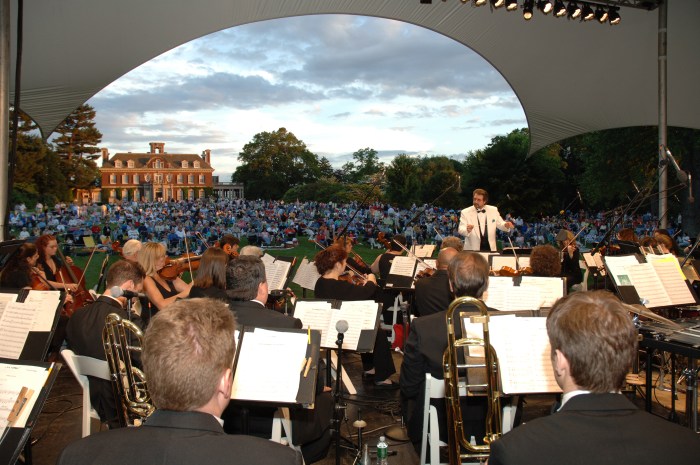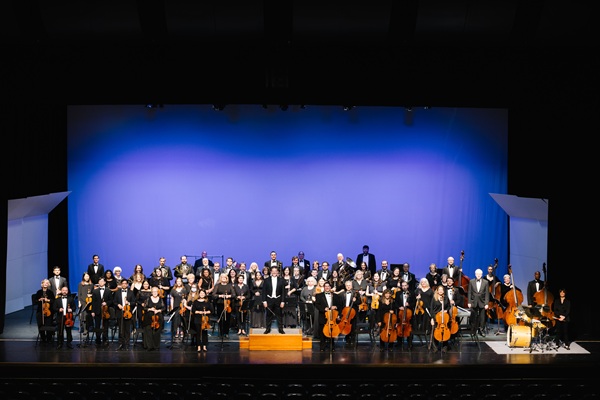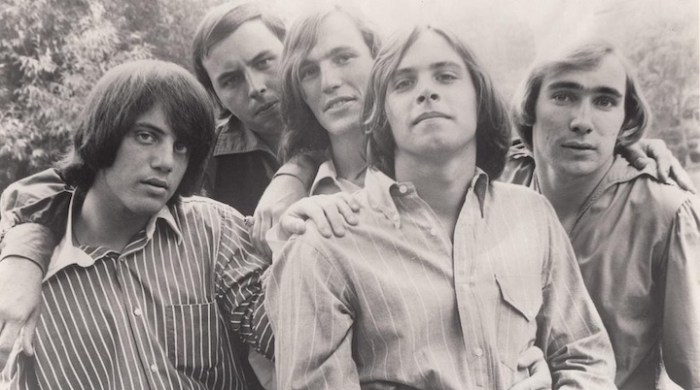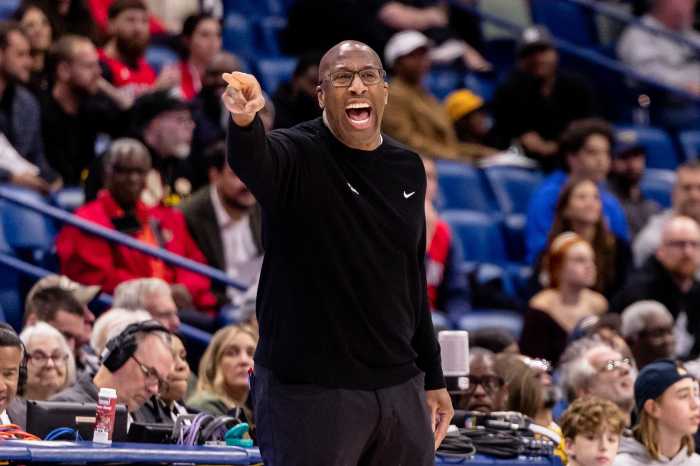 “This one goes out to my dad, wherever you are,” Antonia Bennett said, introducing her final number as opening act. The younger Bennett’s comment was clearly a jab at the fact that, a half hour after show time, her legendary father had yet to make an appearance, remaining offstage and obscured from the adoring legion of fans that had packed the NYCB Theater at Westbury on Friday, April 14.
“This one goes out to my dad, wherever you are,” Antonia Bennett said, introducing her final number as opening act. The younger Bennett’s comment was clearly a jab at the fact that, a half hour after show time, her legendary father had yet to make an appearance, remaining offstage and obscured from the adoring legion of fans that had packed the NYCB Theater at Westbury on Friday, April 14.
Nonetheless, in the short wait that preceded Tony Bennett’s grand entrance, it became apparent that the 90-year-old crooner had no intention of hiding. The first clue was in the stage’s modest setup, so sparse it almost looked bare. It held only a piano, a drum set, an upright bass and a single guitar—a popular variation on the classic jazz quartet format, the likes of which is ideal for lending accompaniment to a performance that favors subtlety and taste over vapid spectacle. However much lenience Bennett’s mythic status and considerable charm could afford him, it was clear that the success of the evening would rest squarely on the endurance of Bennett’s voice.
Fortunately, Bennett boasts a truly extraordinary instrument that’s grown even more stunning with age. His timbre remains warm and resonant, his phrasing relaxed and conversational. But his delivery has darkened some, mostly due to a quality that can only be earned from a lifetime in show business—wisdom. Bennett doesn’t merely have savvy—plenty of performers can pick up enough tricks to get by, if they put the time in. He has a full 90 years on earth in his arsenal. So Bennett’s approach to tackling the droves of standards that populate his set isn’t so much to sing them, but to inhabit them. He knows what every lyric means, down to the last syllable, and he doesn’t let a single one go to waste.
For proof of Bennett’s mastery of interpretation, one had to look no further than his reading of the jazz standard, “(In My) Solitude.” The Duke Ellington composition has been recorded by artists ranging from Ella Fitzgerald to Nina Simone, but Bennett’s performance, on which his voice broke several times to disquieting effect, was equal parts moody and guarded, casting a somber spell on the evening crowd. Bennett covered similar ground on “But Beautiful,” which seldom rose above a whisper.
As hypnotic as the set’s more melancholy numbers were, Bennett and his expert band didn’t shy away from up-tempo material, either. The George Gershwin-penned “I Got Rhythm” was appropriately lively and energetic, buoyed by guitarist Gray Sargent’s breezy phrasing, which recalled the work of Charlie Christian. Another highlight was “Steppin’ Out With My Baby,” which saw Bennett strolling around the stage while playfully enunciating the chorus.
Bennett, who doubtless has more than a few anecdotes to share, did very little talking throughout the night, instead relying on music to tell his story. On songs like “I’m Old Fashioned,” he spoke the opening line, as if to acknowledge how autobiographical the lyrics have become. Stevie Wonder’s classic “For Once in My Life” was slowed down radically, as Bennett managed to take a song about youthful bliss and subvert it into a thoughtful meditation on life’s endless searches for comfort.
A common misconception about songs from the Great American Songbook is that, as accepted classics, they more or less sing themselves. In fact, while the universal nature of the songs’ lyrics make them highly adaptable, the lack of specificity therein does little more than set up an emotional outline for the singer, who then must fill in the blanks on his or her own. It’s a testament to Bennett’s intelligence as a singer that he can so easily force a listener to reconsider a song’s meaning.

Most poignantly was this true during Bennett’s cover of the 1982 classic, “How Do You Keep the Music Playing?” The song, originally recorded as a duet between James Ingram and Patti Austin, is typically thought to use music as a metaphor for maintaining a relationship. But the audience was forced to think of the song in a more literal sense when Bennett let the opening lines dangle and evaporate into the air. “How do you keep the music playing/How do you make it last?”
Of course, Bennett has kept the music playing for more than 65 years, and appears to have no immediate plans to stop. This can be attributed as much to his passion for performing as his inexplicable vivacity. Bennett, unaided by a teleprompter, plowed through his set with no breaks, hesitations or missteps, and every time he reached back for a long, punishing note, he never came up empty.
“Should we keep going?” he asked charmingly, after an explosive finish to “Who Cares (So Long As You Care for Me).”
The crowd squealed with approval at the least thought-provoking remark Bennett had made all night.

































